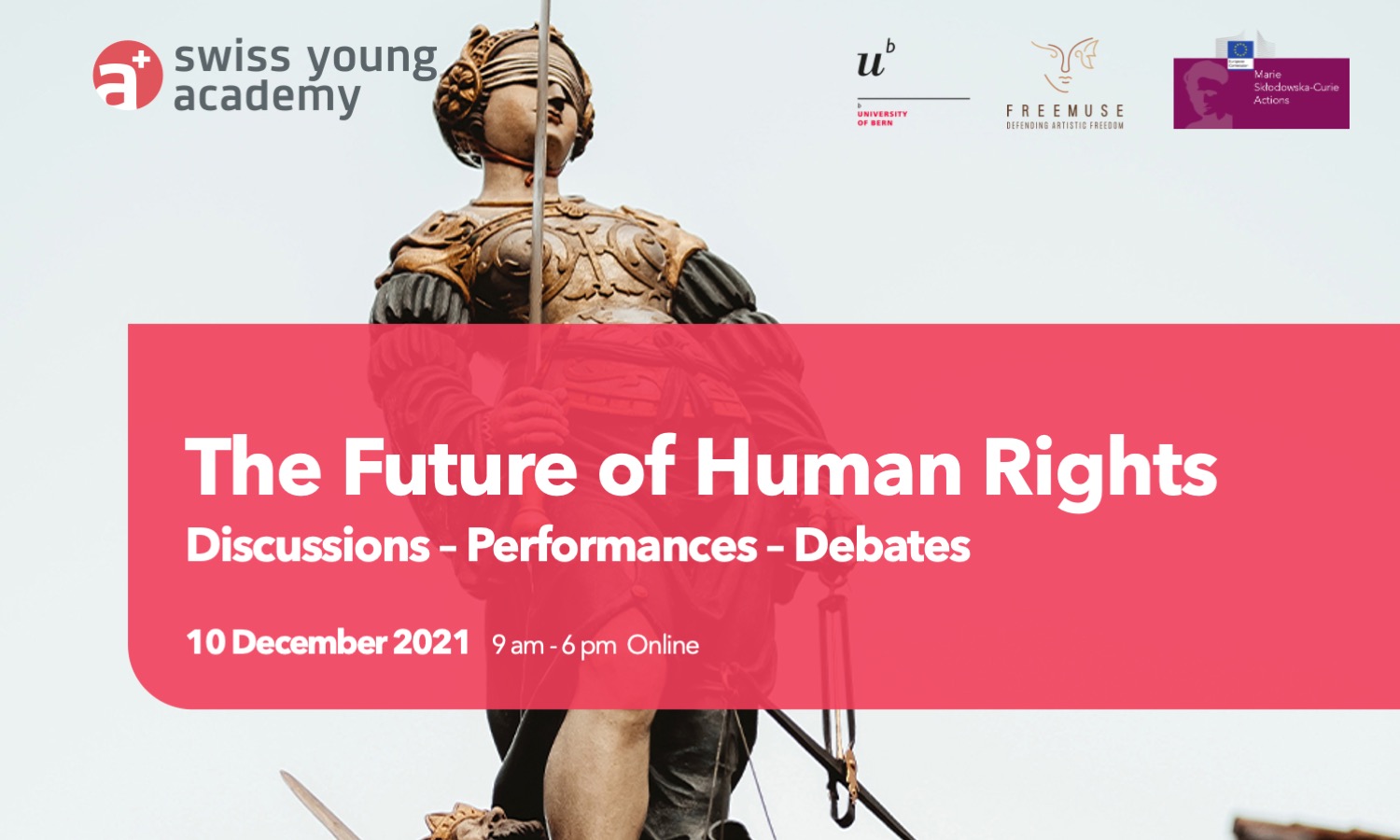Réseautage dans le secteur scientifique.
The Future of Human Rights: Discussions - Performances - Debates
Public Event on 10 December 2021

On the Human Rights Day (10 December 2021), the participants and the project group discussed emerging opportunities of and threats to human rights in the context of climate change, art, health care, and digitization. Specifically explored were the following questions: How and to what extent does climate change affect human rights? How can these be made tangible through pictorial representation? How do mass surveillance, censorship, and authoritarian regimes threaten artistic freedom? Do digitised data contribute to inequalities in health care? What kinds of datafication are desirable, and what role does the right to health play in these debates? What happens to human rights when both the concept of the human and the concept of the state come under pressure due to digitization? During the event, it was asked whether human rights are an appropriate concept to address these global challenges. In what ways do they remain relevant in this uncertain future? Can they provide adequate answers to critical issues the world is facing today?
The event brought together an interdisciplinary audience and provided the ground for lively discussions between representatives of various disciplines. The opening and closing remarks were addressed by Estefania Cuero, elected member of the Swiss Young Academy and its first speaker (2020-2021).
Digitization
The panel on human rights and digitization opened with a specially for this occasion produced video. The moderators Dr. Philipp Markolin and Dr. Stefan Schlegel were joined by the following speakers:
- Prof. Kerstin Noëlle Vokinger, Ass. Professor for Public Law and Digitalization, Health Law and Regulatory Sciences, UZH
- Dr. Ienca Marcello, College of Humanities, EPFL, Department of Health Sciences and Technology, ETH Zurich
- Hannes Grassegger, Journalist, Technology Reporter, Author
Health
The discussion of the panel on health data was moderated by Dr. Agata Ferretti. She was joined by the following speakers:
- Célia Mignan, MSc. ETH Chemistry, Clinical Project Manager and Bla*Sh Member
- Prof. Dr. Terje Andreas Eikemo, Norwegian University of Science and Technology (NTNU)
- Serge Houmard, Federal Office of Public Health
Arts
The panel on human rights and artistic freedom was moderated by Prof. Dr. Britta Sweers, Director of the Institute of Musicology (University of Bern). She was joined by the following speakers:
- Jasmina Lazović, Freemuse Programme Coordinator – Global Monitoring
- Hilda Paredes, composer (Mexico/UK)
- Anki Sjöberg, co-director and founder, Fight for Humanity
- Luis Velasco-Pufleau, Marie Skłodowska-Curie Global Fellow, University of Bern and McGill University
Climate Change
The aim of the design challenge launched for the fourth topic, human rights and climate change, was to depict climate change in the light of human rights. And by doing so, explore creative ways to science and policy communication. An interdisciplinary jury composed of five experts from various fields (human rights, science, arts, and science communication) evaluated the artworks by children to adults based on several criteria (originality, communicative value, and complexity). The jury selected ten works. The authors received monetary prizes and their works are exhibited in a virtual exhibition.
The speakers participated in various ways, ranging from a creative design challenge to interactive sessions, and conversations with experts in a variety of fields. The participants engaged in exchanges outside and beyond the disciplinary boxes and re-imagined not only the future of human rights but also human rights for the future. Due to the pandemic circumstances, the event had to be held online and some parts of the program, including a musical performance and informal exchanges in Bern, could not take place.
Project group
Sandra Bärnreuther
Devi Bühler
Estefania Cuero
Elisa Araldi
Catherine Jutzeler
Stefan Schlegel
